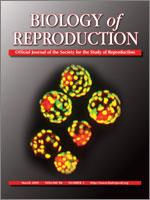Prior studies have demonstrated that combined treatment of testosterone with a progestin induces a more rapid and greater suppression of spermatogenesis than testosterone treatment alone. We hypothesized that the suppressive effects of the combination of testosterone undecanoate (TU) injections plus oral levonorgestrel (LNG) on spermatogenesis may be mediated through a greater perturbation of testicular gene expression than TU alone. To test this hypothesis, we performed open testicular biopsy on 12 different adult healthy subjects: 1) four healthy men as controls; 2) four men 2 wk after TU treatment; and 3) four men 2 wk after TU LNG administration. RNA isolated from biopsies was used for DNA microarray using the Affymetrix Human Genome U133 Plus 2.0 oligonucleotide microarrays. Gene expression with ≥2-fold changes (P < 0.05) compared with control was analyzed using the National Institutes of Health Database for Annotation, Visualization, and Integrated Discovery 2008 resource. The TU treatment altered the gene expression in 109 transcripts, whereas TU LNG altered the gene expression in 207 transcripts compared with control. Both TU and TU LNG administration suppressed gene expression of insulin-like 3; cytochrome P450, family 17, subfamily A1 in Leydig cells; and inhibin alpha in Sertoli cells; they increased proapoptotic transcripts BCL2-like 14, insulin-like growth factor-binding protein 3; and they decreased X-linked inhibitor of apoptosis protein. In comparison with TU treatment alone, TU LNG treatment upregulated insulin-like 6 and relaxin 1, and downregulated RNA-binding protein transcripts. We conclude that TU LNG administration induces more changes in testicular gene expression than TU alone. This exploratory study provided a novel and valuable database to study the mechanisms of action of hormonal regulation of spermatogenesis in men and identified testicular-specific molecules that may serve as potential targets for male contraceptive development.
How to translate text using browser tools
1 March 2009
Levonorgestrel Enhances Spermatogenesis Suppression by Testosterone with Greater Alteration in Testicular Gene Expression in Men
YanHe Lue,
Christina Wang,
Yu Gui Cui,
Xing Hai Wang,
Jia Hao Sha,
Zuo Min Zhou,
Jun Xu,
Charles Wang,
Amiya P. Sinha Hikim,
Ronald S. Swerdloff
ACCESS THE FULL ARTICLE

Biology of Reproduction
Vol. 80 • No. 3
March 2009
Vol. 80 • No. 3
March 2009
male contraception
progesterone
spermatogenesis
testicular gene expression
testis
testosterone




